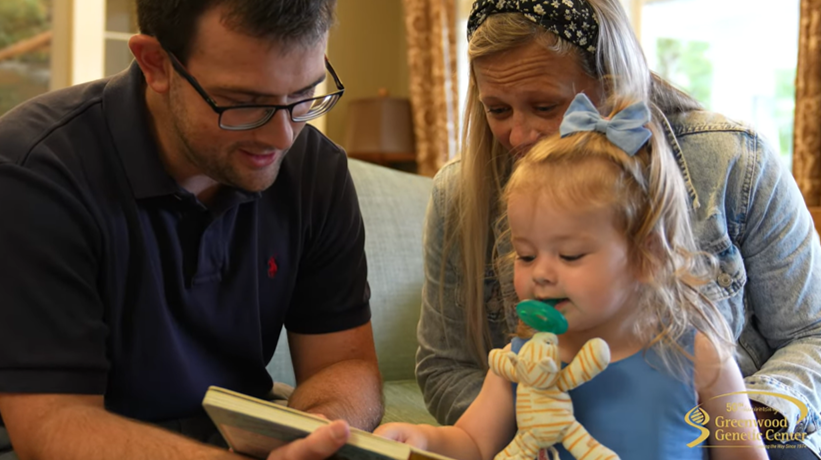Prenatal exome sequencing (PES) is available for patients with abnormal findings on ultrasound. This is a phenotype-driven analysis where only pathogenic and likely pathogenic variants related to the reported clinical features will be included in the prenatal report.
PES can be requested as a duo (maternal and fetal sample) or as a trio (maternal, paternal, and fetal sample). Maternal Cell Contamination (MCC) is required for this test.
Reanalysis may be requested at no additional charge after the baby is born. Any new medical information should be reported to the lab upon request for reanalysis. A new consent form will be required for reanalysis. Any changes suspected of causing the concerns identified during pregnancy will require a postnatal sample for confirmation.
A preliminary report will be available at 3 weeks from sample receipt, if requested. The final report will be available within 3-5 weeks. Cell culture, if needed, takes 1-4 weeks and may lengthen turnaround time.
Duo Analysis : 81415, 81416 Trio Analysis : 81415, 81416x2
Please contact the lab.
Prenatal exome sequencing is a single genetic test designed to analyze the important regions of thousands of clinically important genes simultaneously. PES is phenotype-driven and is not able to completely analyze the entire exome. There may be mutations in genes that will not be identified by this test. PES is not able to detect all types of genetic mutations such as large missing or extra pieces of the chromosomes or expanded triplet repeats. This test may not detect changes in the mitochondrial DNA, which is separate from the chromosomal DNA. The following findings WILL NOT be reported for PES: Variants of Uncertain Clinical Significance Variants in new genes where the function of the gene is currently unknown Secondary findings Benign variants Carrier status Variants associated with an increased risk for common conditions such as diabetes and high blood pressure, or changes that can give information about drug metabolism (pharmacogenetics) will not be reported. If requested, the postnatal reanalysis may include additional variants in novel genes and variants of uncertain significance as well as the option to report secondary findings.
Prenatal exome sequencing may be indicated in the presence of multiple fetal anomalies or other unexplained ultrasound findings. Recently, the American College of Medical Genetics released a statement supporting the use of prenatal exome sequencing in the setting of ultrasound abnormalities since it has demonstrated diagnostic utility in the prenatal setting
Next Generation Sequencing
Two recently published studies identified an increase in diagnostic yield of 8-10% using prenatal exome sequencing following normal karyotyping and microarray results. We recommend further array-based testing to more accurately address the concerns of dosage alterations. The Cytogenetic Laboratory at GGC offers a high resolution whole genome SNP microarray. The GGC Diagnostic Laboratory Directors are available for further consultation regarding the limitations of the NGS and array testing procedures.
Amniotic Fluid: Direct amniotic fluid will be accepted for analysis given there is sufficient volume for back-up culture to be established. A back-up culture at reference lab OR Greenwood lab is required. Additional charges may apply if cell culture is required after receipt of the sample. If sending direct fluid for PES only, 10-20 ml of amniotic fluid is requested. Chromosome studies will require an additional 10-15 ml of fluid. Cultured amniocytes: 2x T25 confluent flasks Maternal Sample: A maternal sample is required. Accepted sample types include whole blood in an EDTA/lavender top tube (4-5 ml), saliva/saliva swab, or extracted DNA (≥ 3 μg). For CVS sample, please contact the laboratory to determine if sample can be accepted for PES. If a postnatal reanalysis or targeted analysis is requested, an additional blood sample after delivery may be requested.
The specimen should be kept at room temperature and delivered via overnight shipping. FedEx is preferred. If shipment is delayed by one or two days, the specimen should be refrigerated and shipped at room temperature. Do not freeze the specimen. Samples collected on Friday can be safely designated for Monday delivery. Please contact the lab with any questions.
Call our laboratory at 1-800-473-9411 or contact one of our Laboratory Genetic Counselors for assistance.
Robin Fletcher, MS, CGC
Falecia Thomas, MS, CGC
Alex Finley, MS, CGC
